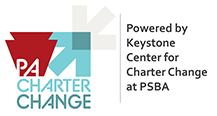Winners and losers in the recently enacted Pennsylvania budget
Pottstown Mercury by Paul Muschick, July 12, 2022
Analysis of the best and the worst in a state that is flush with cash.
Election-year budgets often are tame so as not to irritate voters, but the Pennsylvania budget breaks that mold in good ways and bad. Flush with cash, Democratic Gov. Tom Wolf and Republican legislative leaders agreed to significant investments in areas that have long demanded additional funding. But as with any negotiation, some not-so-great ideas made it through and some worthy proposals didn’t make the cut.
Winners
Education: Wolf had lobbied for a major increase in spending for public schools and he got it in his final budget before he leaves office. Allocations to school districts through the fair funding formula, which determines need based on a variety of factors, will increase by $525 million. Another $225 million will go to the poorest school districts. There also is more money for early education and special education. It’s long overdue for the state to distribute more education dollars through the fair funding formula. Before this budget, only about 11% of school spending went through that process. Lawmakers may have felt comfortable putting more money into schools because of the state’s favorable financial situation. Revenues have exceeded projections and there is a surplus. The state is being sued by parents, school districts and others who contend Pennsylvania hasn’t met its constitutional obligation to provide a “thorough and efficient” education system. The case is awaiting a ruling from Commonwealth Court.
Losers
Charter school regulations canceled: While education won more spending, it lost in accountability. The Philadelphia Inquirer reported that new regulations drafted to improve accountability of charter schools will be pulled back by the Wolf administration.
The regulations, approved by the Independent Regulatory Review Commission in March, were not onerous. All they would have done is make sure charter schools follow some of the same rules that apply to school districts. They would have been required to use Generally Accepted Accounting Principles and Generally Accepted Government Auditing Standards.
Charter school trustees would have been considered public officials subject to state ethics laws. That means they would have had to file annual disclosure forms about financial interests and recuse themselves from administrative or financial decisions if there are conflicts of interest.
The charter school lobby objected to the rules, of course. Republican lawmakers agreed the regulations went too far. And the Wolf administration conceded this fight during budget bartering.
Click here to read more.
